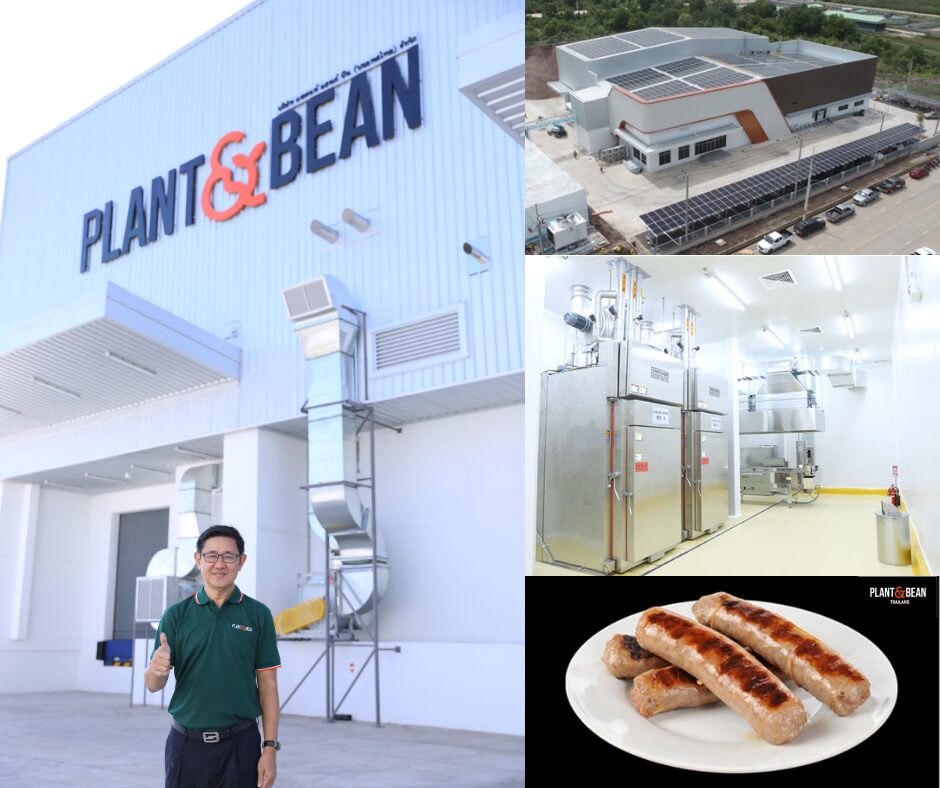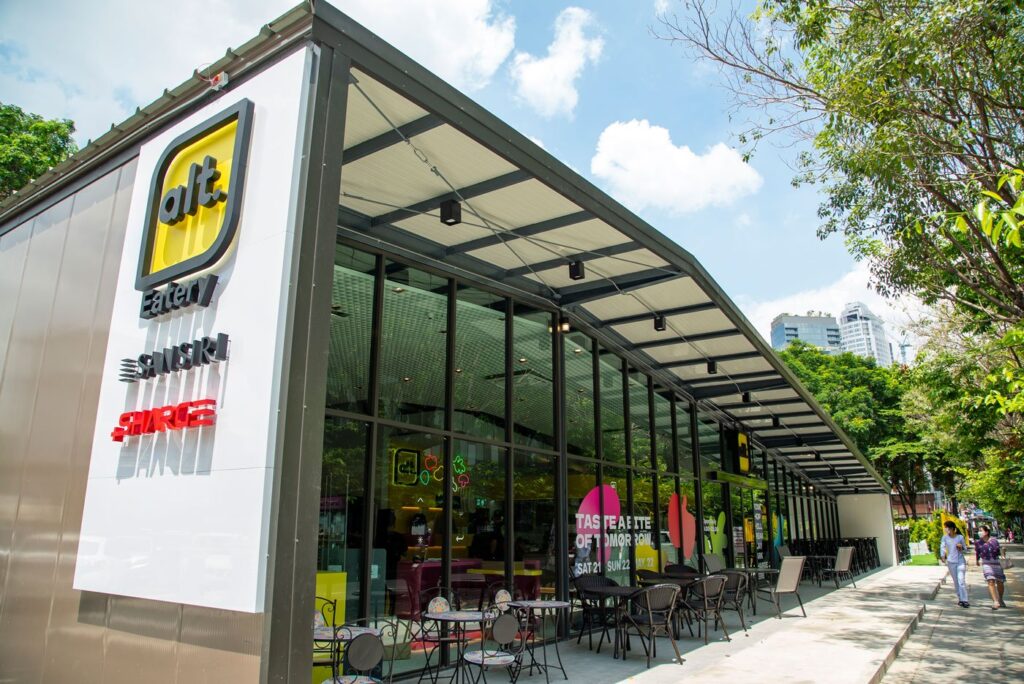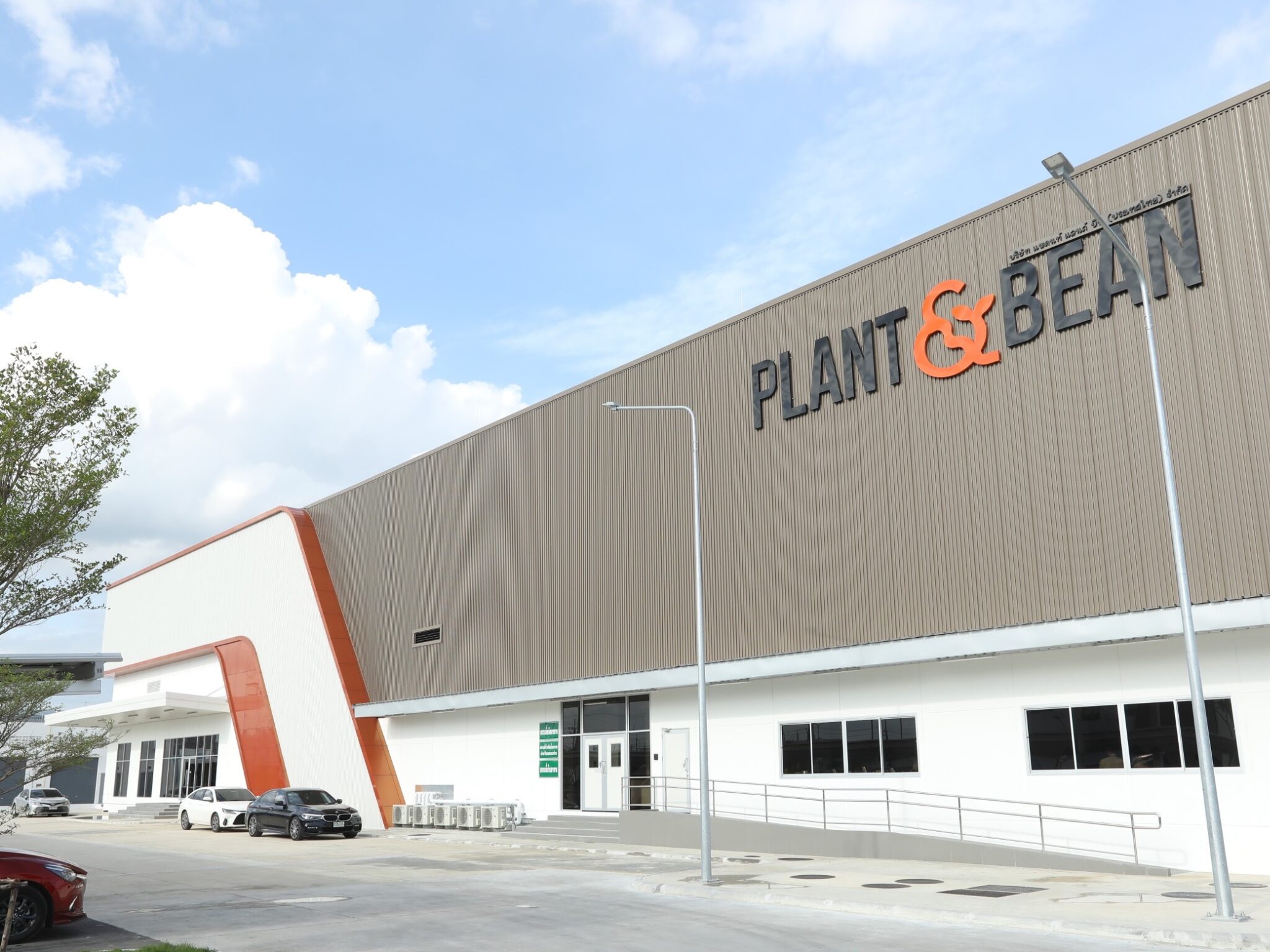Down, Out and Back: Plant & Bean Back On the Map with New Factory in Thailand
5 Mins Read
A year after filing for administration in the UK, vegan food manufacturer Plant & Bean has opened a new factory for plant-based meat via a joint venture in Thailand.
Much like its counterparts, 2023 was a turbulent year for Plant & Bean, the British co-manufacturer of plant proteins that once set out to open Europe’s largest plant-based meat factory. In June, it called in administration after facing operational issues and bearing the brunt of food and energy inflation.
A few weeks later, the company’s UK production facility and assets were purchased out of administration by VBites founder Heather Mills, with the factory continuing production. Plant & Bean owed creditors over £6M, but it had also been brewing up its new manufacturing site in Thailand, a result of a joint venture that could signal a revival of fortunes.
Established in 2021, the entity, called Plant & Bean Thailand, is a collaboration between Plant & Bean and Nutra Regenerative Protein Co (NRPT), which is itself a joint venture between Innobic and Nove Foods Co. Innobic is the life sciences arm of Thai state-owned oil producer PTT, while Nove Foods Co is the subsidiary of vegetarian and plant-based food producer NR Instant Produce.
Plant & Bean owns 49% of the new company, while Nutra Regenerative Protein Co is the majority shareholder at 51%. The entity has opened what it claims is Thailand’s first 100% plant protein facility in Ayutthaya, and will cater to both domestic and international markets. “The country’s abundance of raw materials makes it an ideal location for such ventures,” Buranin Rattanasombat, chief new business and infrastructure officer at PTT and chairman of Innobic Asia, told the Bangkok Post.
Lower production costs make Thailand attractive

Since Russia’s war on Ukraine, food manufacturers have had their costs skyrocket, according to Rattanasombat, who noted that the financial difficulties have prompted many to relocate their production facilities. Thailand, with its cheap production costs, is seen as an attractive investment destination for plant-based companies, with potential to become a regional hub for manufacturing these foods.
The Plant & Bean Thailand factory has an initial capacity to produce 3,000 tonnes of product per year, which can be expanded to as much as 25,000 tonnes. The company plans to increase the current volumes to 13,000 tonnes in the next two years through a ฿400M ($1.08M) investment.
The facility will produce non-GMO plant-based products, and has recently received a bunch of accreditation, including halal certification and several food safety checks. It has passed the BRC Global Food Safety Standard at the Grade A level, and says it is the first ASEAN company to receive a BRCGS Plant-Based certification for the production and distribution of plant-based foods. Additionally, it has obtained good hygiene practices and HAACP (hazard analysis) authorisations.
“Achieving certification to this standard will help build confidence among customers regarding quality, production safety standards, and distribution of products accepted according to international standards, thereby increasing customer base and competitiveness in the market,” said Rattanasombat.
“The factory utilises solar energy to produce electricity for the production process, reducing costs and CO2 emissions, benefitting the environment,” he added. “NRPT has also collaborated with future food manufacturers in Thailand to develop food innovations, with the goal of becoming a demand creator for production quantities from other countries, fostering new innovations, and sourcing raw materials domestically to enhance future production capabilities in the food industry, promoting sustainable health for the Thai people.”
Targeting health and price parity, and international markets

Plant & Bean Thailand’s product portfolio can be divided into two groups: ready to cook and ready to eat. The former includes items like meatballs and minced meat, while the latter entails sausages, nuggets and dumplings.
“In addition to the strength in production efficiency using world-class technology, the products provide a texture, taste and appearance closely resembling real meat, [and are] delicious and easy to consume,” Rattanasombat said. He added that these are high in protein and targeting nutritional superiority to increase adoption of plant proteins.
Confident in its ability to turn a profit, the manufacturer has already been in touch with several international food firms for B2B opportunities. One of these is global fast-food chain Church’s Texas Chicken, which has outlets at PTT petrol stations. It has partnered with Plant & Bean Thailand to offer vegan menu options geared towards younger consumers.
These products will be supplied via NRPT’s alt.Eatery brand, which also has a namesake vegan restaurant in central Bangkok. This is described as an extension of Innobic’s life sciences R&D to “serve as an upstream of [the] future food industry, to provide opportunity and to increase distribution channels to retail entrepreneurs” in the healthy foods sector, according to Rattanasombat.
“Currently, the factory produces plant-based protein foods for customers both domestically and in the Asia-Pacific region,” he said. The company also has plans to set up factories in the US, China and South America. But it’s not just limited to plant-based foods, as he explained: “It is engaged in research and development of plant-based medicine in collaboration with Innobic to address healthcare needs and reduce disease rates.”
Rattanasombat added that, at current rates, the production costs for plant-based food range from ฿100-110 per kg ($2.7-$3), which he said was close to the price of premium pork sold in Bangkok. Delivering price parity is paramount for the adoption of alternative proteins in Thailand, with 47% of consumers finding these too expensive, according to a January 2024 survey.
But the factor that overtakes price in importance is nutrition, with 63% of respondents saying meat analogues are healthier. However, 70% find these too processed, and 47% would rather eat traditional plant proteins like pulses, legumes and whole grains. Either way, though, meat consumption seems to be on a downward trajectory, with two-thirds of Thai people saying they’ll reduce or stop eating meat in the next two years.




